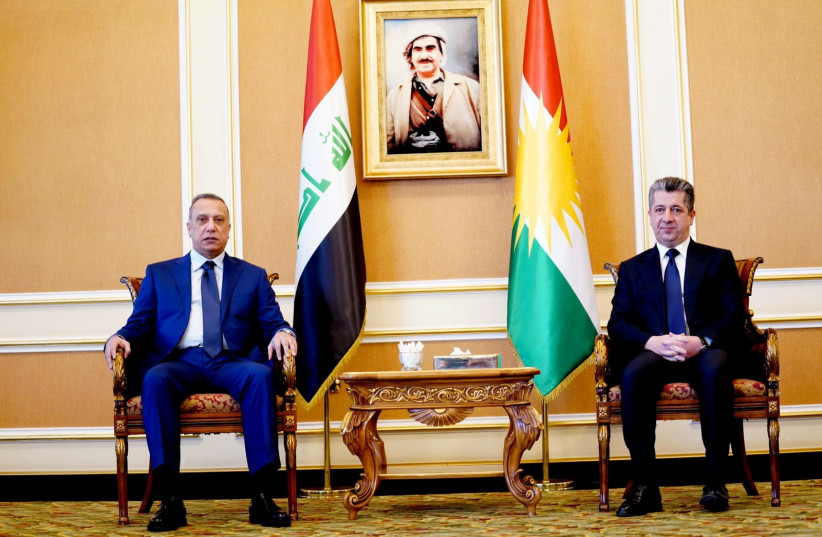Turkish President Recep Tayyip Erdogan met with Masrour Barzani, the prime minister of Iraq’s autonomous Kurdistan Regional Government (KRG), on Friday. Barzani then headed to London on Monday for a meeting with the UK’s prime minister. Meanwhile, back in the Kurdistan region of Iraq, Turkish warplanes have launched a new offensive against what Ankara says are “terrorists.”
Turkey’s attacks on the PKK in northern Iraq came after the meetings with the KRG official. Turkey is making another power play in northern Iraq. It claims to be fighting the PKK, which it calls terrorists, but it is setting up bases and using Iraqi airspace. Turkey has close ties to the KRG, the autonomous Kurdish region. Its interests there include energy trade and investment, and it wants to keep a close eye on the far-left PKK, which Turkey has been fighting for years.
“One of the areas Turkey and the KRG cooperate is the fight against terror, especially considering that the PKK terrorist group has strongholds in parts of northern Iraq under KRG control,” Turkey’s Daily Sabah noted.
According to Rudaw media, “fresh clashes erupted between the Iraqi army and an armed group affiliated to the Kurdistan Workers’ Party (PKK) in Shingal over control of the area, reported PKK media, which linked the incident to Turkey’s new military operation against the PKK in the Kurdistan Region of Iraq.” This means that there is now an unfolding operation across northern Iraq and new clashes and instability.
While Turkey makes its moves, another operation is afoot led by Tehran. Iran wants to manhandle Baghdad and secure more influence in Iraq. It uses groups that are pro-Iranian to achieve this. Fars News in Iraq reports that leading Shi’ite parties have recently been meeting in Iraq, including participants in a pro-Iran meeting that was designed to end the current political crisis in Iraq.

“The statement described the transformation of the political process and the move toward practical steps to form a government and meet the demands of the Iraqi people as the main goal that all Iraqi parties should strive for,” Fars News says.
Qais al-Khazali, secretary-general of the Asaib Ahl al-Haq movement in Iraq, stressed earlier that the coordination framework was opposed to a political stalemate and ignoring Iraqi interests. What he actually means is that Iran doesn’t want Iraq to be led by groups backed by Muqtada al-Sadr and his allies. Iran has its own allies in parliament in Iraq, led by Hadi al-Amiri and his Fatah Coalition, as well as those like Khazali and Nouri al-Maliki. Iran has friends in the Kurdish region as well, among the PUK, the second-largest Kurdish political party.
While Masrour Barzani has been in Turkey and now heading to the UK, it appears Iran wants to use its influence with the State of Law Coalition and the PUK and other factions. Iran’s media notes that the Sadr faction in parliament has 73 of the 329 seats, while the Barzani-led KDP has 33 seats. “It is true that the Sadr faction won the most parliamentary seats in this election, but these seats are not enough to form a government, and it must form a coalition with other political groups,” Fars News says.
What comes next may be Iran trying to find a way to continue to stir up controversy and drive a wedge between the natural coalition that has formed between Sadr, Sunni political elements and the KDP. Iran will use Maliki, Amiri, Khazali and others in order to do this. Meanwhile on the ground, pro-Iran militias have increasingly threatened Turkish bases in northern Iraq, especially the base near Bashiqa. This means that Iran and Turkey are making a play for power in Iraq. The Kurds are the hinge on which both of these countries are pushing, and the door for power in Iraq runs through that hinge.
